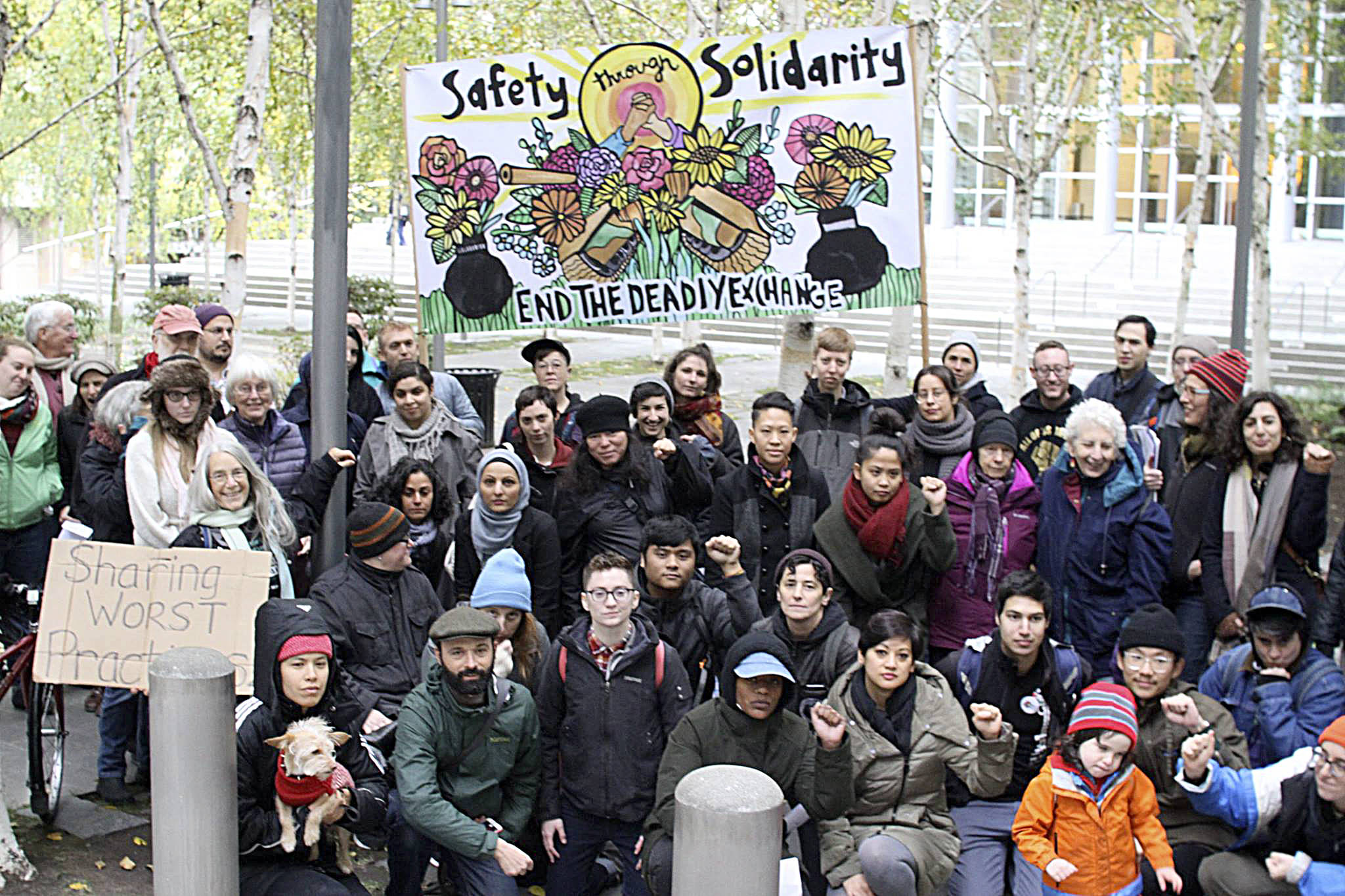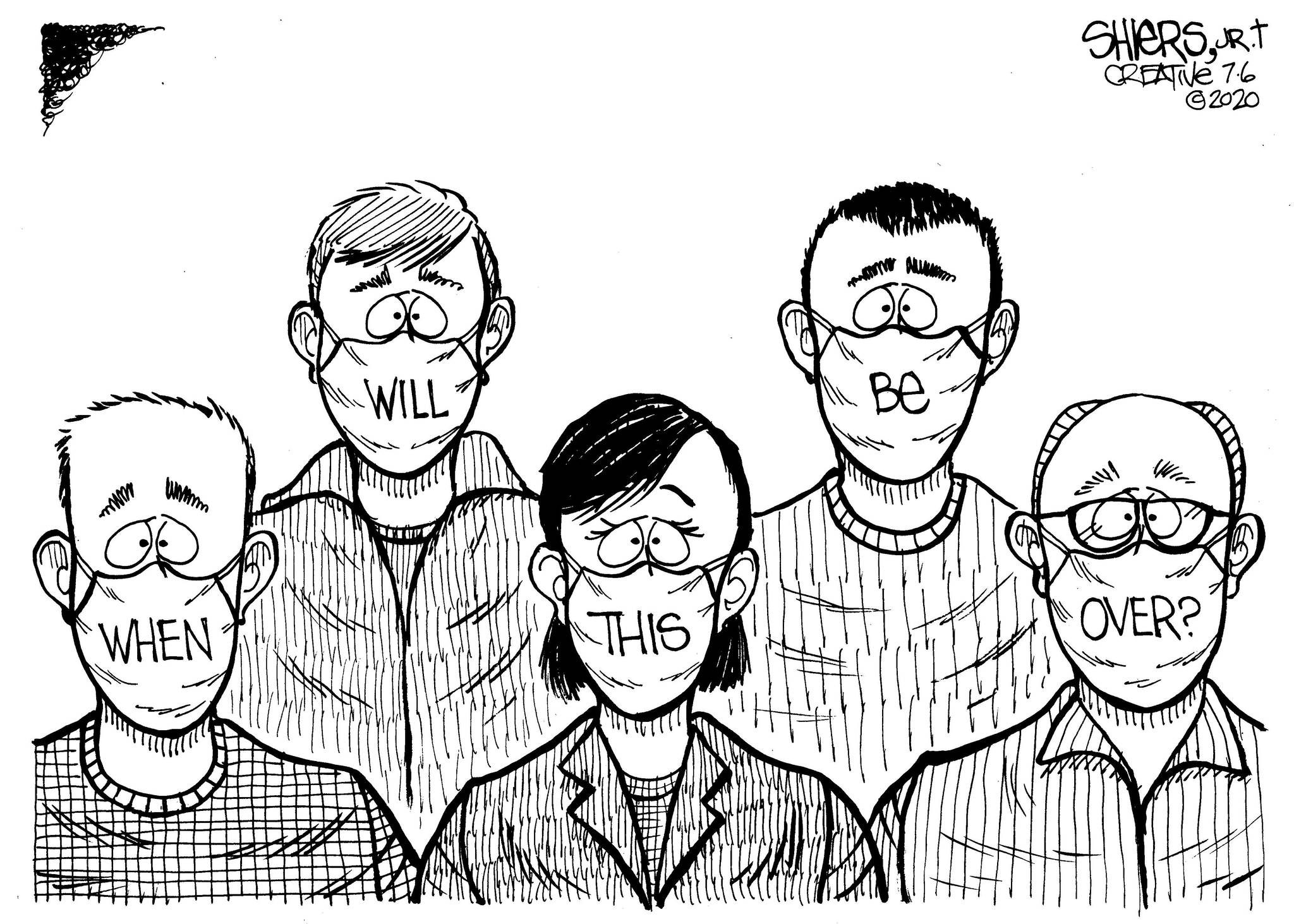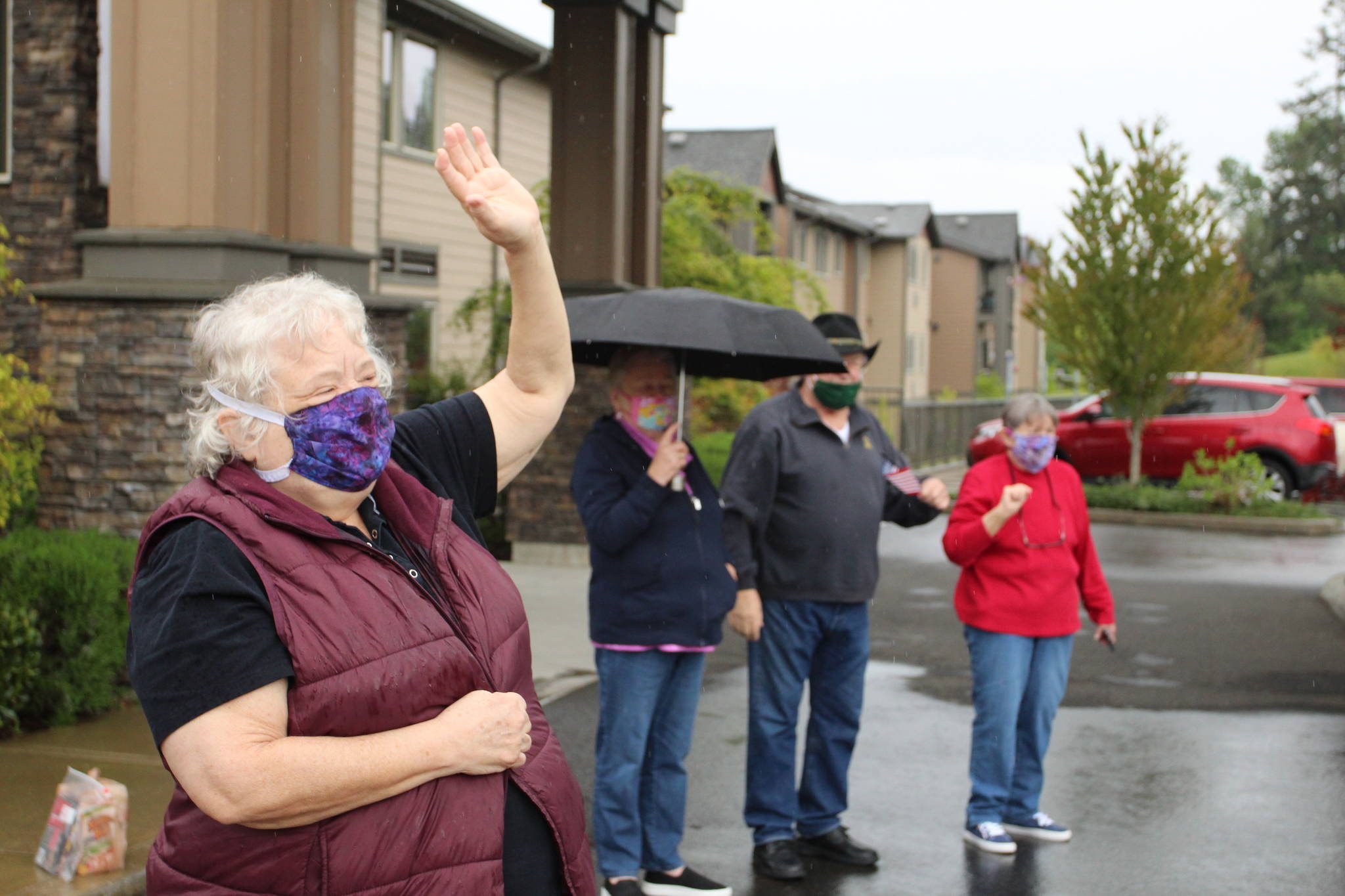On November 8, one year after the election of Trump, I gathered in the cold with 60 other people in downtown Seattle to protest police exchanges between the Seattle Police Department and the Israeli military. As a Jew, it felt empowering to come together in community to confront the surge of racism, antisemitism, and Islamophobia that is at the forefront of Trump’s era.
The Jewish value of tikkun olam, translated as repairing the world, means that Jews bear responsibility not only for our own moral, spiritual, and material welfare, but also for the welfare of society at large. We enact tikkun olam by performing mitzvot, or acts of justice and kindness. This value is meaningful to me because it calls on us to pick up the pieces of our broken world, tend to what has been shattered, and move toward repair and wholeness.
We gathered on Wednesday in that very spirit—to make connections between broken systems in Israel/Palestine and broken systems in the U.S. and to proclaim that more policing and militarization will never make our world more whole.
The action was one of 15 organized by chapters of Jewish Voice for Peace (JVP) all over the country last Wednesday, insisting that the Anti-Defamation League (ADL) end its programs that promote an exchange of worst practices between the U.S. and Israel. Our local JVP chapter was joined by other community groups who are impacted by police violence and want to see justice for Palestinians, including the Muslim Student Association at Seattle University, Northwest Detention Center Resistance, and the International League of People’s Struggle.
We planned the action in Seattle after learning that the Seattle Police Department participated in at least two such trips to Israel—in 2013 and 2015 —where they swapped tactics with the Israeli military.
Considering the recent SPD murder of Charleena Lyles, a black mother of four, and the federal consent decree delivered to the police force for excessive force and racially biased policing in 2012, what does the SPD have to learn from the Israeli military? What lessons should be swapped between a U.S. police department with a documented record of racist violence and an occupying army with its own egregious record of human rights abuses?
A little history is in order: the founding of the Israeli state in 1948 meant expulsion and dispossession for more than 700,000 Palestinians who became refugees, according to the UN. In 1967, Israel took control of the West Bank, Gaza Strip, and East Jerusalem and has since imposed 50 years of military occupation, exerting control over Palestinians through repression of political dissent, pervasive violence, and institutionalized discrimination. Sadly, our tax dollars enable these abuses: Israel is the largest recipient of cumulative U.S. foreign assistance since World War II.
In the aftermath of 9/11, Israel used its decades of military rule over Palestinians to market itself as a global leader in counterterrorism. Suddenly, Israel’s 70 years of dispossession and 50 years of occupation became a marketing brochure for “successful” policing. In The Shock Doctrine, Naomi Klein describes the growth of Israel’s homeland security industry in the early 2000s: “Overnight, Israel became, in the words of Forbes magazine, ‘the go-to country for antiterrorism technologies.’ ”
U.S. law enforcement agencies, such as the SPD, help bolster the idea of Israel’s “expertise” by participating in exchange programs with Israel. On these delegations, SPD officers train with the Israeli agencies who carry out the country’s policies of occupation via surveillance, restrictions of movement, repression of social movements, torture, and violence.
For instance, delegates visit the Gilboa prison near Nazareth. Prisons like this house more than 800,000 Palestinians who have been arrested and detained—nearly 40 percent of today’s male Palestinian population. Israel systematically arrests and prosecutes between 500 and 700 children, some as young as 12, in military courts each year. What should Seattle police—already under fire for advocating a new youth jail—be learning from Israeli prison officials?
Police on these trips also visit militarized checkpoints in the Occupied West Bank. Checkpoints are the central infrastructure used by the Israeli military to impose restrictions on Palestinian movement, preventing Palestinians from moving freely within, to, and from the West Bank and causing severe hardships for millions of Palestinians going about their lives. What should the SPD be learning from the human rights crisis of Israeli checkpoints?
We brought these questions to our protest on Wednesday, and I brought my own deep disappointment that these exchanges are facilitated and funded by the ADL, which calls itself a Jewish civil rights organization. As a Jewish person, I don’t feel like my civil rights are being protected by programs that enable an exchange of oppressive tactics that result in harm to Palestinians in the Middle East and people of color in my own city.
In August, when white supremacists marched on Charlottesville chanting “Jews will not replace us,” we received a chilling reminder that antisemitism is intertwined with the growing white supremacist movement in the United States. We desperately need Jewish organizations that can fight the brokenness of our world, including antisemitism, Islamophobia, and racism. What we don’t need are organizations, such as the ADL, that fight violence with more state violence.
As a Seattleite, I want to see accountability to community and the de-militarization of the police department, not a ramping up of tactics borrowed from a military force. These ADL programs promote the notion that violent policies targeting some communities create “safety” for other communities. I believe that true safety for all of us comes from investing in community and showing up in solidarity. As part of a larger effort to bring wholeness to our broken world, I stand with movements against police violence in Seattle and around the country and with movements for justice and liberation for Palestinians.
For more information on the local chapter of Jewish Voice for Peace, contact seattle@jvp.org, and sign the petition to end the exchange.




